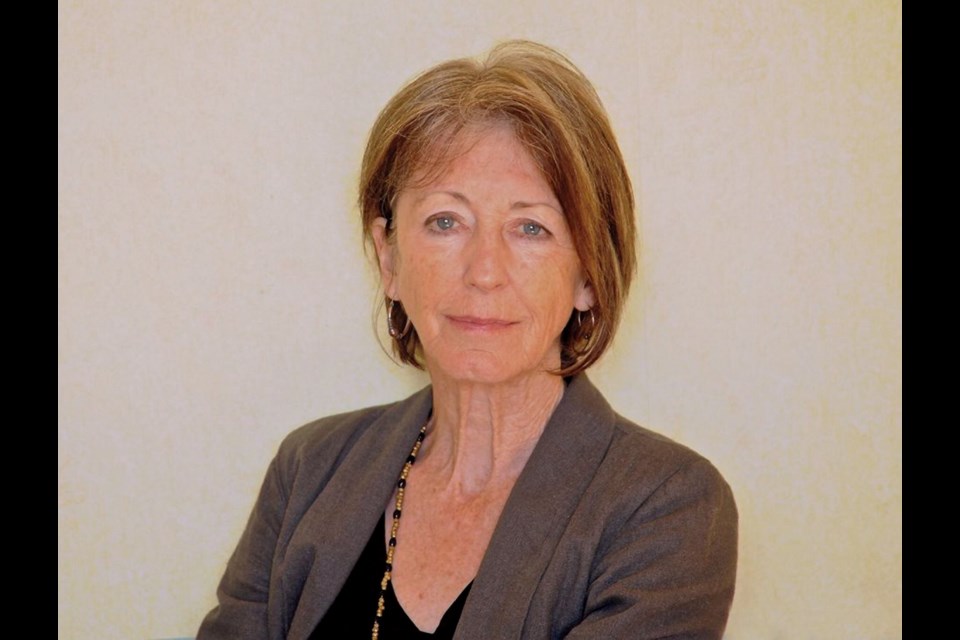Pauline Holdstock and Dawn Green have taken home the top awards at this year’s City of Victoria book prizes.
At a gala at the Union Club of British Columbia on Wednesday night, Holdstock won the City of Victoria Butler Prize for her novel The Hunter and the Wild Girl, and Green won the Bolen Books Children’s Book Prize for her novel In the Swish.
Holdstock and Green each receive a $5,000 prize.
Holdstock has published six novels, including Into the Heart of the Country, which was long-listed for the 2012 Giller Prize, and Beyond Measure, which won the Ethel Wilson Award for Fiction and was shortlisted for both the 2004 Giller Prize and the Commonwealth Writers’ Prize.
The Hunter and the Wild Girl is about a feral girl who roams the forests of 19th-century France, stealing food from remote farmyards and avoiding human contact. She meets a grieving hunter who has become a recluse.
Green is a high-school Spanish and English teacher, a basketball coach and a volunteer with Special Olympics B.C. In the Swish is a coming-of-age story about the world of competitive girls’ basketball.
Now in its 13th year, the City of Victoria Butler Book Prize is a partnership between the City of Victoria and Brian Butler of Butler Brothers Supplies. Mel Bolen founded the Bolen Books Children’s Book Prize in 2008.
Today, we present reviews of the two winning books and the other finalists for both the Butler and Bolen prizes.
City of Victoria Butler Book Prize
Winner:
The Hunter and the Wild Girl by Pauline Holdstock
Finalists:
Once They Were Hats: In Search of the Mighty Beaver by Frances Backhouse
Becoming Lin by Tricia Dower
He Leaves His Face in the Funeral Car by Arleen Paré
Double Dutch by Laura Trunkey
Bolen Books Children’s Book Prize
Winner:
In the Swish by Dawn Green
Finalists:
Save Me, Kurt Cobain by Jenny Manzer
The Summer We Saved the Bees by Robin Stevenson
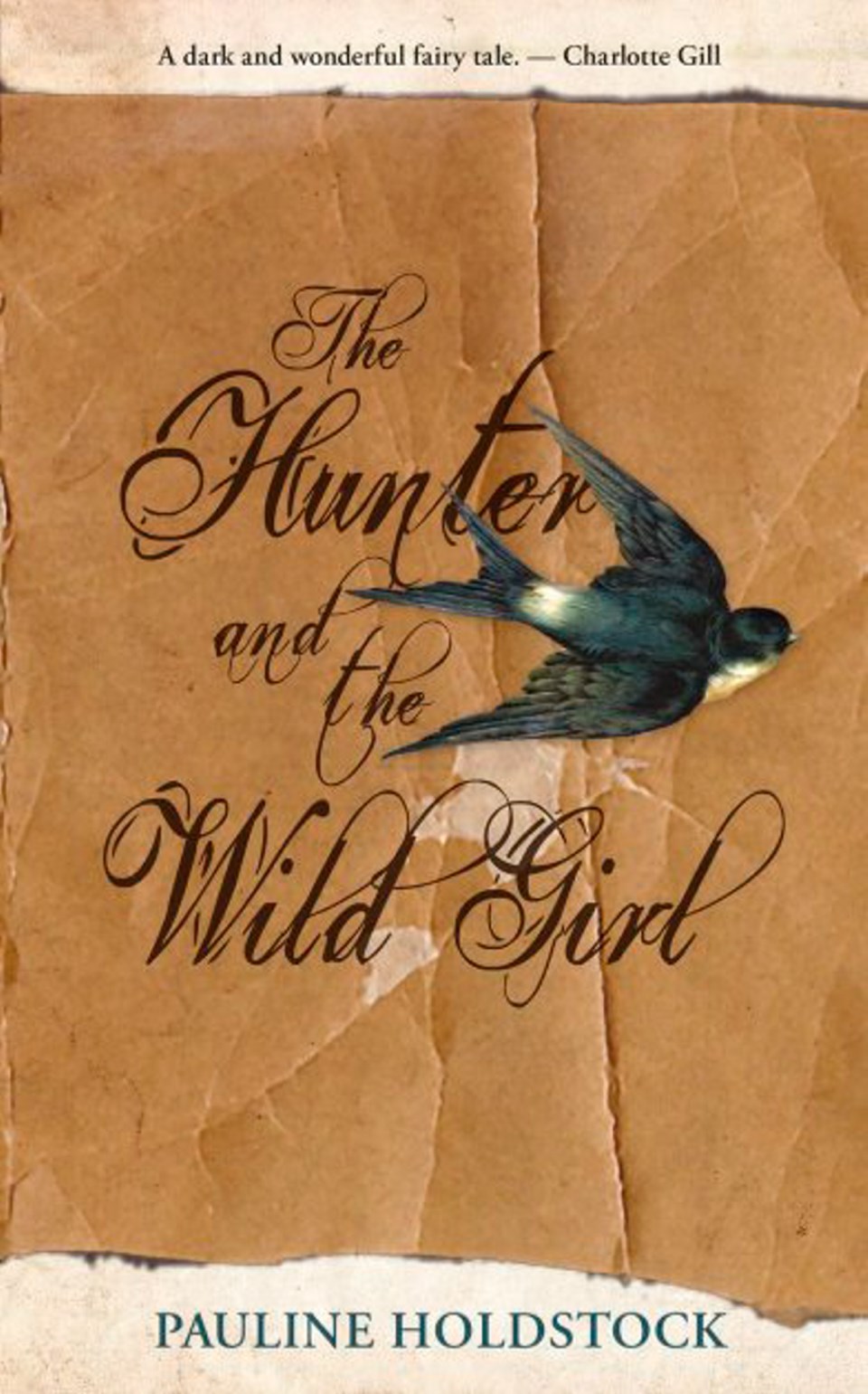 The Hunter and the Wild Girl
The Hunter and the Wild Girl
By Pauline Holdstock
Published by Goose Lane
Reviewed by Julie Paul
This captivating novel, Pauline Holdstock’s sixth, tells the story of a grieving hunter who has become a recluse — a taxidermist creating intricate works of art in the remote Languedoc region of France — and that of a feral girl on the run, and what happens when these two cross paths.
Both the hunter and the wild girl live outside the norms of civilization, and want to keep it that way. However, their meeting sets off a chain of events that leads each of them into territory they’ve never entered before.
In exquisite prose, with a wide-reaching perspective, Holdstock takes us on an exhilarating journey. The story’s perspectives are varied and numerous, from a village boy to the mayor to the hunter’s estranged wife; even the land itself is included in the cast of characters that populate this book. For example, on page 306, “The hill itself took breath and leaned back a little for her, offering her the chance to lean against it, so that at last she was indeed a lizard hugging the rock, crossing it, and gradually climbing it, gradually, gradually, plastered against its generous breast.” As a result, readers feel an intimate connection with the whole world Holdstock brings to life on the page.
Anyone who has ever been lonely, or grieving, or in want of what they do not have will recognize the emotions and impulses these characters embody. A beautiful, haunting tale.
Victoria writer Julie Paul is the author of two short-story collections. Her second, The Pull of the Moon, (B&G 2014), won the 2015 Victoria Butler Book Prize. Her first collection of poetry, The Rules of the Kingdom, is forthcoming with MQUP in 2017.
Once They Were Hats: In Search of the Mighty Beaver
By Frances Backhouse
Published by ECW Press, 2015
Reviewed by Ariel Gordon
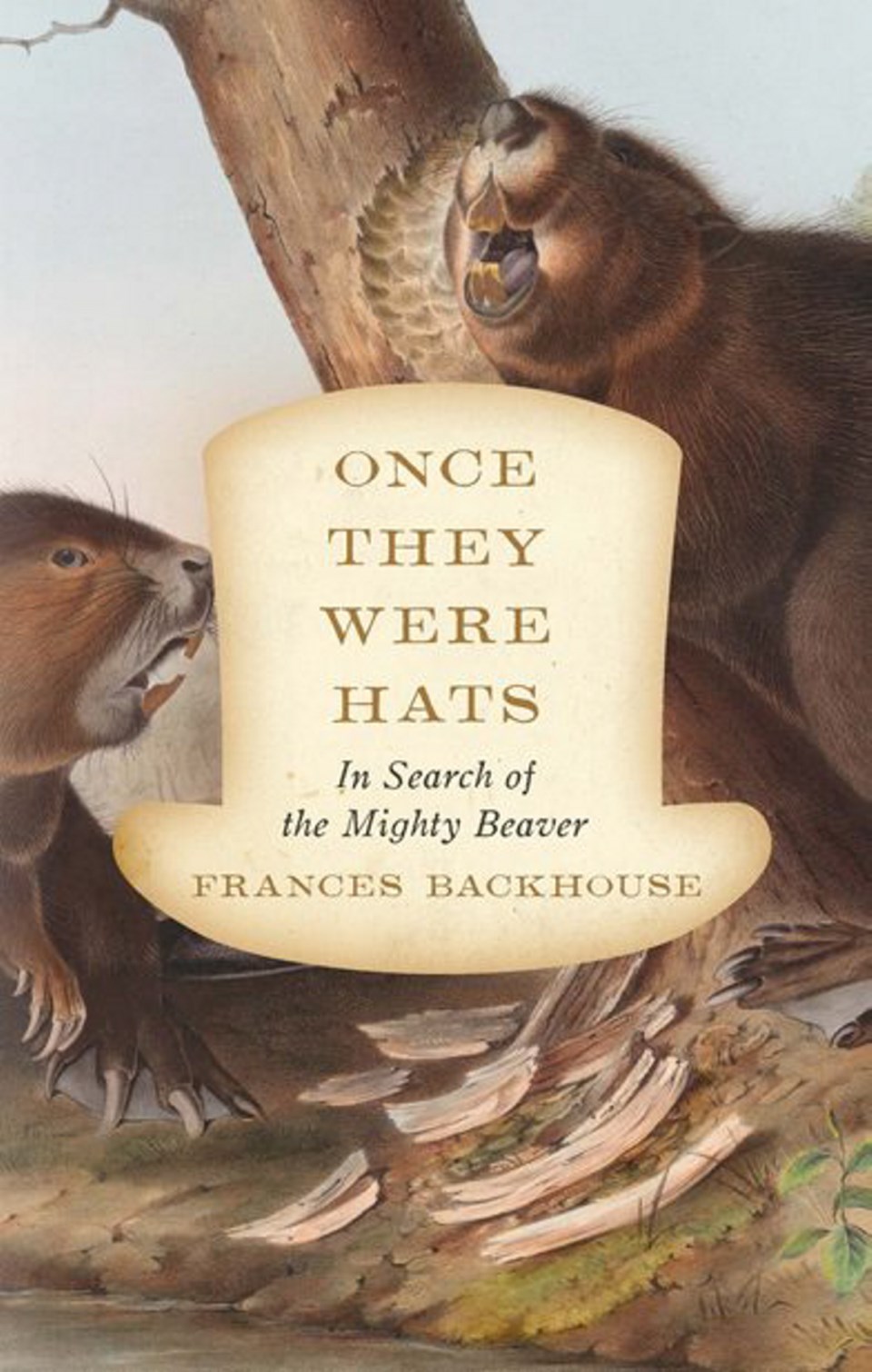 By the end of the first chapter of Once They Were Hats, two things were clear.
By the end of the first chapter of Once They Were Hats, two things were clear.
First, that Frances Backhouse is a writer in her prime, able to parse complex bits of data for the reader while also telling a good story. Second, that while beavers were economically important to Canada’s fur trade, if they are allowed to repopulate Canada’s watershed, they might help stabilize our climate-changed, over-developed ecosystems.
Backhouse is a writer who in her own words has always danced “back and forth between short-form and long-form, journalism and creative nonfiction.”
And so, in addition to her work teaching creative writing at the University of Victoria, in addition to her magazine journalism, Backhouse is the author of five books, the last of which won the 2010 City of Victoria Butler Book Prize.
With Once They Were Hats, Backhouse has shifted her gaze away from the women and children of the Klondike, from field guides on owls and woodpeckers, to tell the story of humans and beavers.
That is, how we’ve co-existed in the past and how we might live together in the future.
Once They Were Hats ranges back and forth in time, across kilometres and cultures. Backhouse is always respectful, curious and thoughtful in her treatment of everything from fur trapping to beaver archeology, from Grey Owl’s conservation legacy to the architecture of beaver dams and lodges.
Most important, she explains what scientists mean when they say that beavers are a keystone species. Simply put, they change the landscape, primarily by keeping water on the land.
This trait is what brings them into conflict with cottagers, farmers and suburbanites, but Backhouse shows that the beaver’s main legacy, besides flooded fields and chewed-on shorelines, is that they create and maintain healthy ecosystems.
So: Once They Were Hats works as a cultural history of the beaver. It could almost be used as a master class on how to write long-form creative nonfiction. But will it prod Canadians to rethink their relationship with Castor canadensis? Here’s hoping!
Ariel Gordon is a Winnipeg writer with a background in science and journalism. Her second collection of poetry, Stowaways (Palimpsest Press, 2014), won the 2015 Lansdowne Prize for Poetry. She is currently writing creative nonfiction about Winnipeg’s urban forest, which is slated for publication in 2018 with Wolsak & Wynn. Gordon works as promotions co-ordinator at University of Manitoba Press.
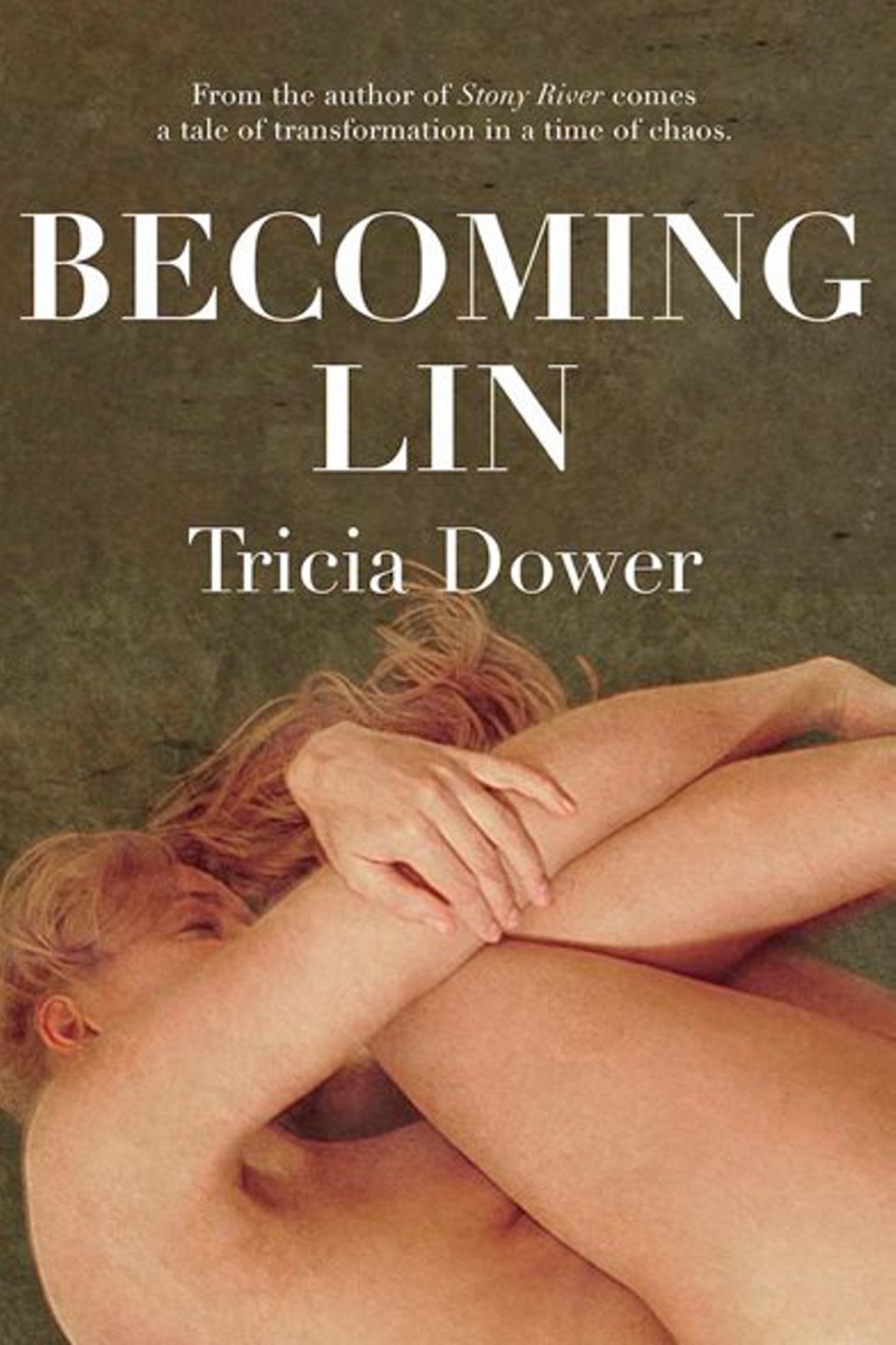 Becoming Lin
Becoming Lin
By Tricia Dower
Published by Caitlin Press
Reviewed by Amy Reiswig
Tricia Dower’s novel Becoming Lin explores the notion that being authentically oneself is rarely as simple as it sounds. Whether dealing with peer and parental pressure, cultural expectations, shifting social values or traumatic events that can strike hard at a sense of justice, safety and even self-worth, we all navigate our little ships through treacherous waters that threaten to swamp us. How can we keep our courses true, our captain’s hats on tight?
This followup to the critically acclaimed Stony River picks up the life of a now 22-year-old Linda Wise — the character Dower says she’d felt the least equipped to go forward. The backdrop for Linda’s growth into self-determined adulthood is, aptly, one of war. Set in religious, small-town New Jersey and Minnesota in the mid-1960s and early ’70s, communities are in conflict around civil rights and Vietnam. The novel allows Dower to dig into a time defined by intense personal commitment, where people had to decide, sometimes very publicly, what they were for or against. Awakened to activism by a young Methodist minister, whom she marries, Linda (now self-reinvented as Lin Brunson) soon finds that the route she thought would help her escape controlling parents and painful memories just leads to another set of constraints around how she should think, behave and be.
With deftness, sensitivity and an obvious deep compassion, Dower explores the many ways to be targeted and wounded in our own private battlefields. One of her characters’ foremost invisible wounds comes from a past sexual assault that leaves Lin’s mind feeling like “occupied territory.” Attacked at knifepoint but not raped or stabbed, Lin recalls that “the jury didn’t find Eldon Jukes guilty of doing anything at all to her,” yet she fights to break out of the trauma of what did happen, what one of her friends refers to as “a prison of a tale.” What does it mean to be hurt in ways others don’t acknowledge, and how long does it last?
Dower, who left the corporate world in 2002 to devote herself to writing, is trying to help move us all forward by calling us out on the idea of a life of integrity: Are we doing the work, both individually and societally? And in our own time of threats, be they climate change or civil war creating thousands of refugees, where will we stand? What will we say, and then what will we do?
While questioning the establishment — whether in terms of religion, feminism, civil and basic human rights — can be viewed as rebellious or even, in certain circumstances, immoral, Dower’s novel shows that seeking answers outside the norm and inside yourself is where we find personal power and freedom. It’s never a calm journey, but it’s the most important we can make.
Writer, editor and musician Amy Reiswig has published book reviews in The Malahat Review, The Danforth Review and Quill and Quire, while her non-fiction has appeared in The Walrus, Utne Reader and This Magazine. A longer version of this review appeared in Focus magazine in March 2016.
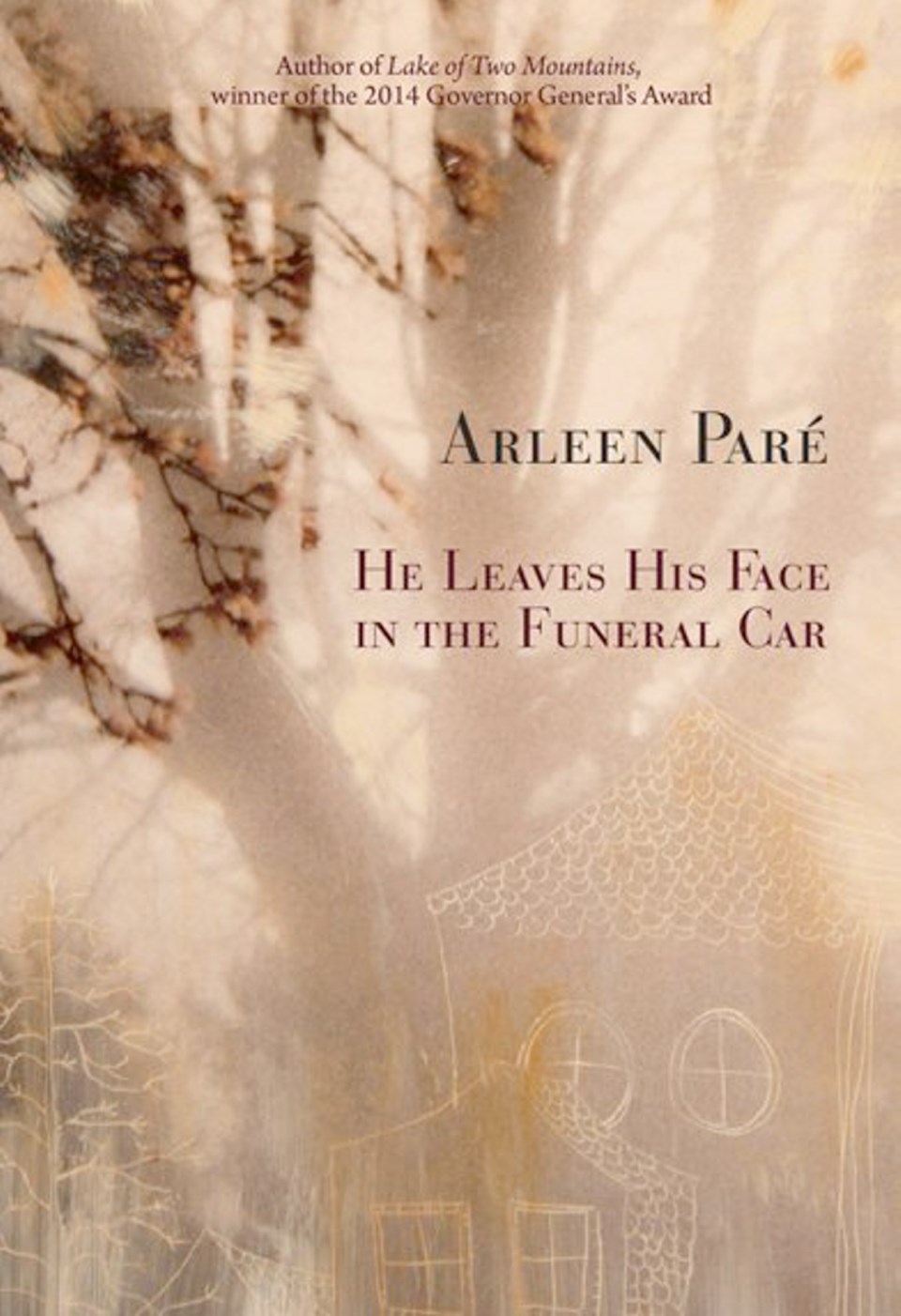 He Leaves His Face in the Funeral Car
He Leaves His Face in the Funeral Car
By Arleen Paré
Published by Caitlin Press, 2016
Reviewed by Tanis MacDonald
Arleen Paré’s fourth book is a lyric examination of losing love and staying present in two parts and many poems, some rooted in the rocky soil of the West Coast, and others stretching across the country to home places of the past.
These poems document a life’s worth of the waxing and waning of family attachments, their sharpened ambivalences and their sometimes painful loosening. Throughout the book, the poet weaves the narrative of loss around the quotidian pleasures of nature, a blossoming demand for awareness that sometimes abandons us in the face of grief.
The winner of the 2014 Governor General’s Award for Poetry for Lake of Two Mountains, Paré brings her eye for nature’s tart rigours as an affective parallel to experience, and she is not afraid of approaching the metaphysical for her poetic narrative, as in Pear Tree in Winter: “Time/ is how you stand outside yourself/ waiting to get in.”
Seeing Paré parse the slender differences between knowing and wanting to know is one of this collection’s great pleasures. For example, in the beauteous In Nomine Dust, the poet notes our dual ephemeralities of body and self as they are intimately tied to the struggle of “thinking ourselves whole/ but knowing/ ourselves particulate.”
The title poem and its affiliates in the first half of the book constitute a deep dive into the rituals and frustrations of parental loss, with all the guilt and love a family can bear. The second half of the book moves to consider other losses, with the heartbreaking Ode to Hazel White and For the Record speaking eloquently of brave people in hard circumstances who did their best against violence and ignorance.
Paré brings to this poetry collection a compassionate understanding that “not every script reads from left to right” (Sequence for a Younger Son) and an admirable recognition of the tender in a tough world.
Tanis MacDonald is the author of three books of poetry, including Rue the Day (Turnstone Press). Recent poems have appeared in The Goose, Alyss, Prairie Fire, Contemporary Verse 2, The Puritan, Iron Horse Review and Best Canadian Poetry 2014. She is associate professor at Wilfrid Laurier University in Waterloo, Ont., where she teaches Canadian literature and creative writing.
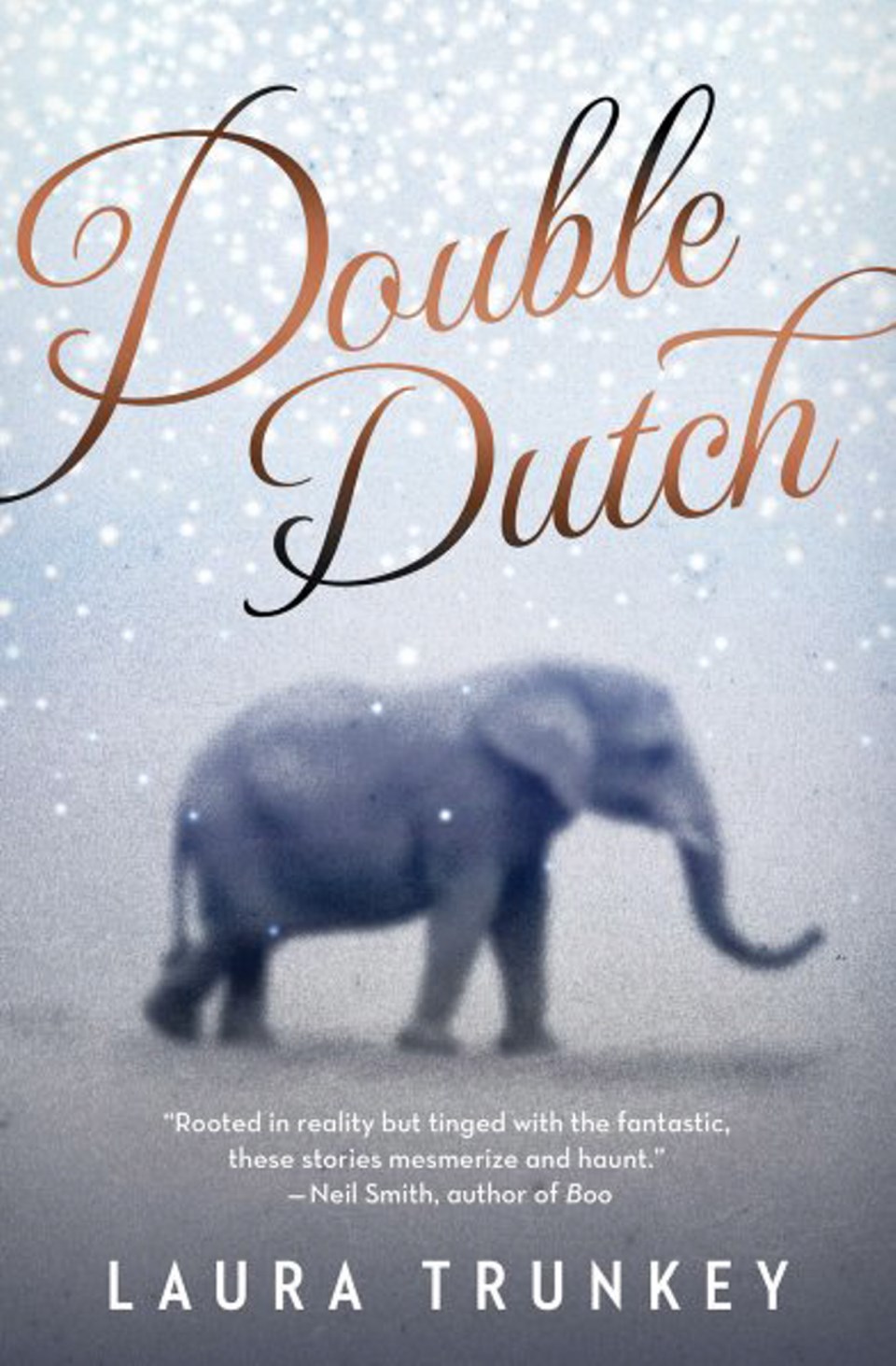 Double Dutch
Double Dutch
By Laura Trunkey
Published by House of Anansi Press
Reviewed by Wendy Morton
When I was a kid, the circus came to town. I went. I loved the fun-house mirrors where I appeared upside down or oddly twisted in ways that made me seem like someone else. I never knew what was coming next.
When I began to read Double Dutch, I had the same fun-house mirror feeling. In Night Terror, Nichole’s son Jasper speaks Arabic in his sleep and she thinks a terrorist has invaded him. Wait a minute and Nichole is revealed. And her son’s night terror is a poem.
Turn the page. In Ursus Arctos Horribilis, a woman attacked by a bear becomes a bear.
In the title story, Double Dutch, Noah, Ronald Reagan’s stand-in, falls in love with Nancy. The mirrors shift again. What is it we are seeing?
Then, in Second Comings and Goings, a gypsy boy is deemed miraculous and walks over water and drowns. Or does he?
In Double Dutch, the house of mirrors is opening its doors to us. Come in, says the sign over the door, come in. Read this book. You never know what will happen here. Magic.
Wendy Morton is a poet, has seven books published and a wall full of awards, including the Meritorious Service Medal from the Governor General for her projects: Random Acts of Poetry and the Elder Project.
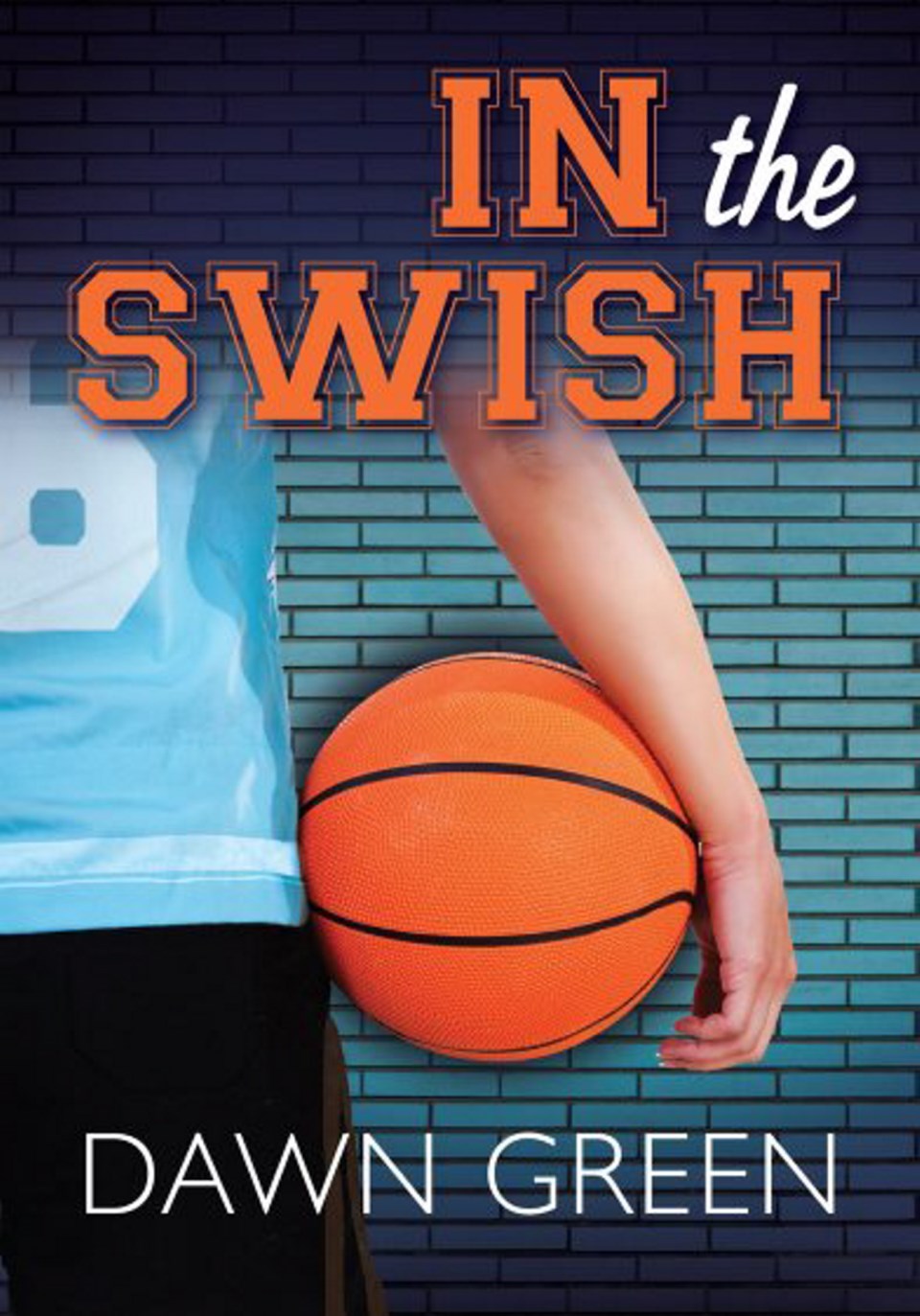 In the Swish
In the Swish
By Dawn Green
Published by Red Deer Press
Reviewed by Kari Jones
If you’re looking for a fast-paced, action-filled read, then In the Swish by Dawn Green is the book for you. From the first chapter right to the nail-biting ending, this book is as tense as the basketball season it represents.
Bennett Ryan is the finest player on the best high-school basketball team in the state. And I do mean the best. The Lincoln High Lady Lions not only win the championship, they do so undefeated. There is one team that’s almost as good, Lions’ arch-rivals Riverside High Storm, but there’s one thing they don’t have: Bennett Ryan. That is until in Bennett’s senior year, her mother becomes Riverside’s principal, and Bennett has to transfer to the new school.
Life isn’t easy for the new girl. Her Storm teammates hate her, and she is increasingly distanced from her old friends. She struggles to find her place at on the Riverside team while figuring out how to let go of her old one.
As a person who was often the new kid at school, I found Bennett’s sense of alienation and frustration both realistic and familiar. But she’s not one to give up her dreams, and she does everything she can to overcome the obstacles put in her way.
It takes a strong writer to keep the tension in a story high while at the same time finding moments for her characters to reflect on who they are and how they should navigate the world when it’s not working the way they want it to, and Green does this expertly. Bennett is not only a star basketball player, she is also a sister, daughter, friend and student, and readers have a chance to see all these sides of her. Green captures the complexities of relationships between teenage girls as they strive to reach their dreams.
Kari Jones has written five books for children and youth, and her work has been translated into several languages. She lives on the West Coast with her husband and son and their dog, Tintin. Her new book, At The Edge of the World will be released this fall.
Save Me, Kurt Cobain
By Jenny Manzer
Published by Penguin Random House
Reviewed by Sara Cassidy
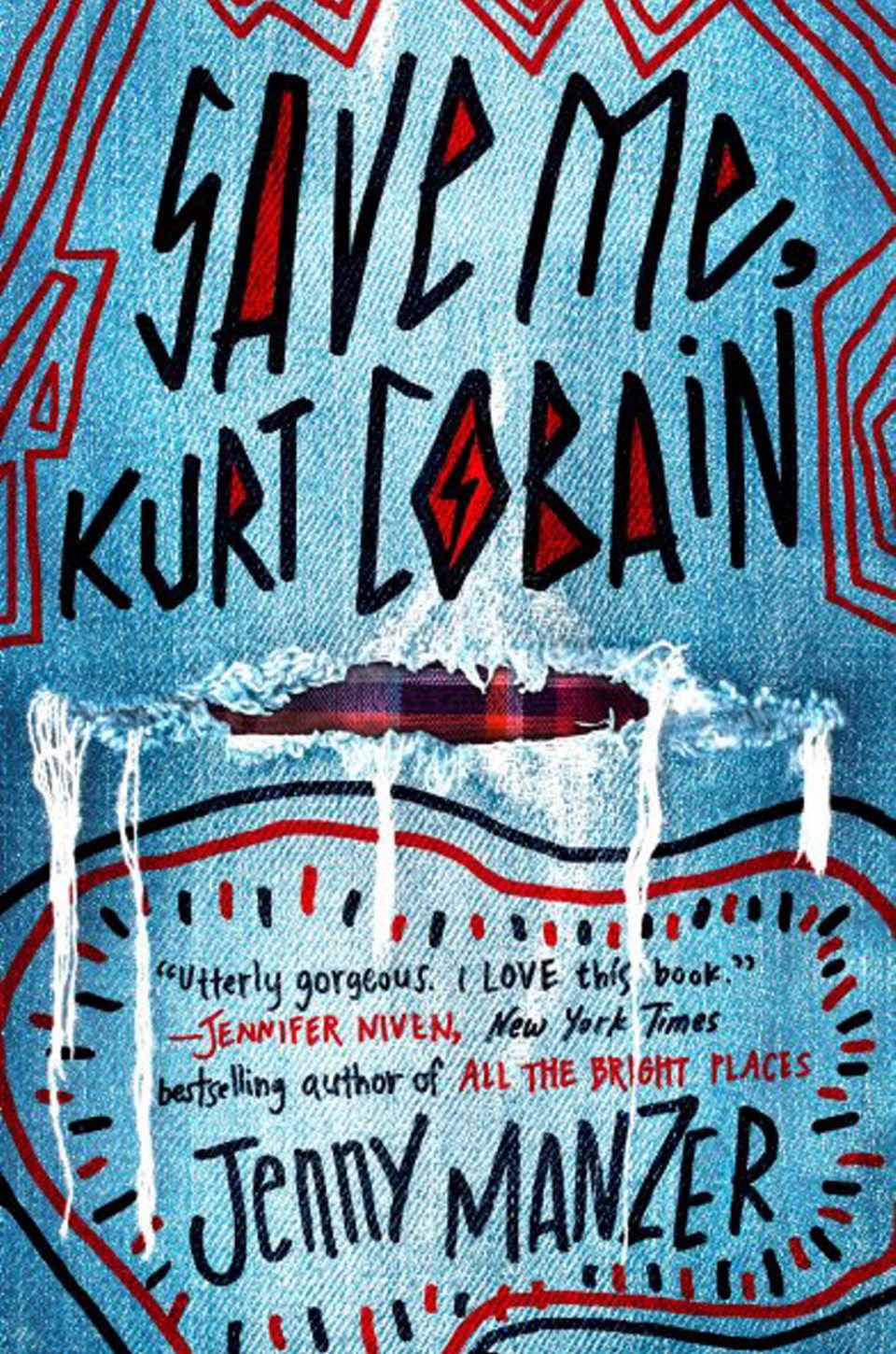 Save Me, Kurt Cobain is a nimble and insightful coming-of-age novel about music, friendship and unrequited grief.
Save Me, Kurt Cobain is a nimble and insightful coming-of-age novel about music, friendship and unrequited grief.
When Nico Cavan was four, her young mother pointed to three snowdrops set in a Mason jar on the family’s faded Formica kitchen table. “I’m going away,” she told her young daughter. “But I’ll be back before these flowers wilt.” The flowers wilted and the petals fell. Annalee Lester never returned.
Nico, now a student in Grade 9 at Victoria High School, is haunted by her mother’s unexplained absence. Nico has blue hair, a taste for secondhand clothes and flannel shirts, and one friend, the sweet Obe, another lone outsider. Nico and Obe save their money to buy CDs at Victoria’s Lyle’s Place, and bond over all things grunge, the punk-influenced alternative music scene (Nirvana, Pearl Jam, Soundgarden, Hole, etc.) that surged in Seattle in the mid-1980s.
Manzer’s image-rich novel is a tribute to how music can bridge distance, soothe and fortify. Nico has very few memories of her mother, which she savours measuredly, treating herself frugally to their balm. But on discovering a box of her mother’s grunge CDs and a collection of zines about Seattle’s 1980s music scene, along with Polaroid photographs showing her mother with late Nirvana frontman Kurt Cobain, the connection between Nico and her mother deepens across the generations and the silence (Nico will also discover that as a teenager, her mother, too, had blue hair). Emboldened, Nico sets off on a music-fuelled, recklessly desperate mission to find her mother, on the way tracking a man she is convinced is Kurt Cobain, and her biological father.
With ferry rides between Seattle, Vancouver and Victoria, Save Me, Kurt Cobain is a consummately West Coast novel, filled with icy rain and wet snow and winter damp that “clung to you like a layer of fish skin.” It is also a paean to dreaming in vintage and DIY, and seeking answers to the toughest questions.
Sara Cassidy is a freelance writer and editor, children’s books columnist for Island Parent magazine, and writing instructor. She has had articles published in the Winnipeg Free Press, Herizons Magazine, Halifax Chronicle Herald, Focus Magazine, Times Colonist, The Globe and Mail, Today’s Parent, Island Parent and CBC Radio. She is working on a young adult novel set in 1800s France, and short story and poetry collections (for adults).
The Summer We Saved the Bees
By Robin Stevenson
Published by Orca Book Publishers
Review by Kari Jones
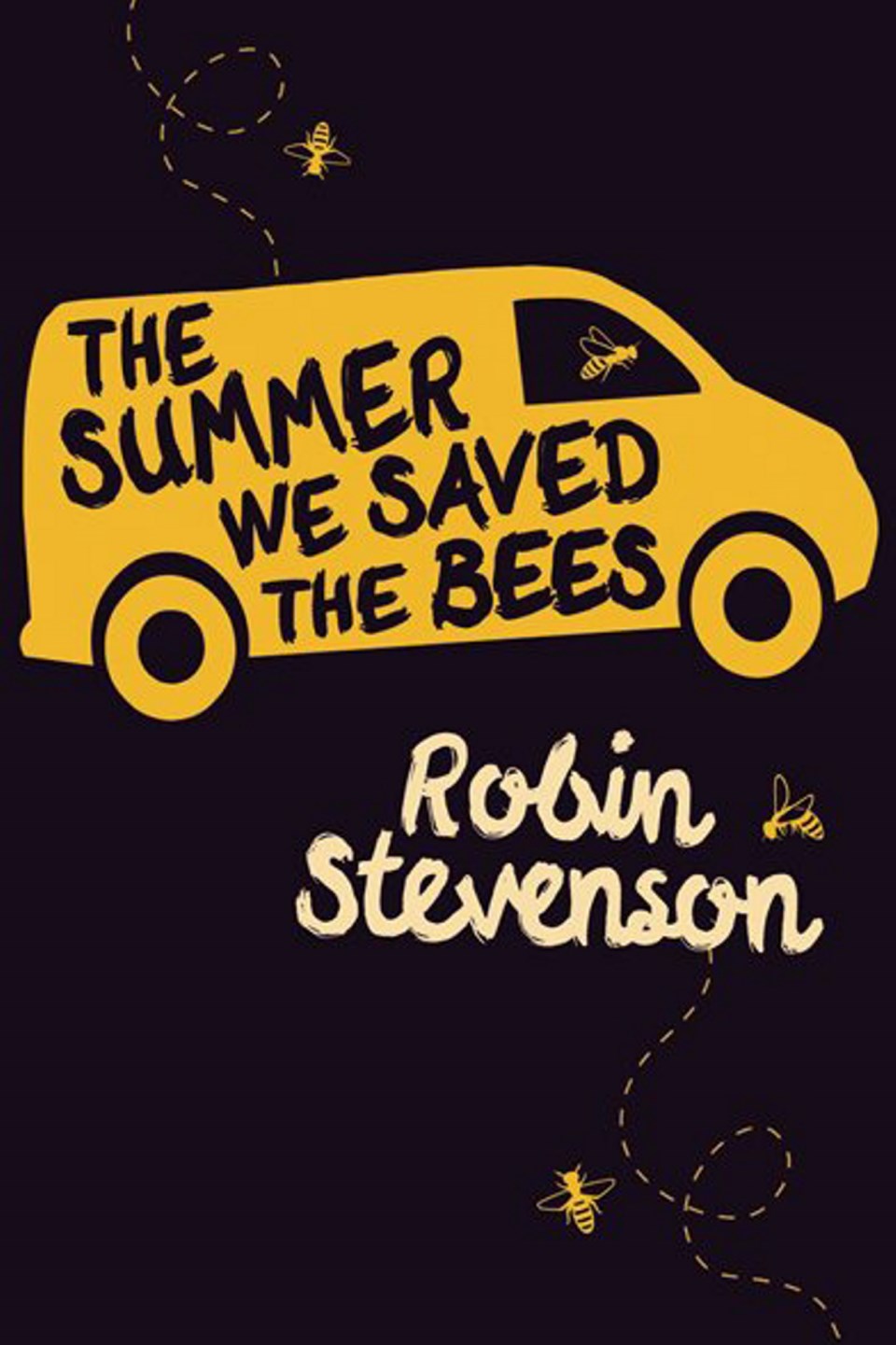 Full disclosure: I loved The Summer We Saved the Bees by Robin Stevenson. From the moment I was introduced to 12-year-old Wolf, his five-year-old twin sisters Saffy and Whisper, his 15-year-old stepsister Violet, and their free-spirited mother Jade, I knew this was a family I wanted to spend time with.
Full disclosure: I loved The Summer We Saved the Bees by Robin Stevenson. From the moment I was introduced to 12-year-old Wolf, his five-year-old twin sisters Saffy and Whisper, his 15-year-old stepsister Violet, and their free-spirited mother Jade, I knew this was a family I wanted to spend time with.
Jade has decided to take the whole family on a cross-country trip to raise awareness about the plight of bees around the world. Wolf understands that they have to save the planet, but he’s not sure living in a van and doing presentations on the road is the way to do it. At first, he is just self-conscious about the stupid costume Jade wants him to wear, but soon he notices other problems too. Whisper, always a quiet child, has stopped talking altogether, and Violet is becoming increasingly desperate to get away from the family and the whole embarrassing endeavour.
Wolf is torn, because he knows that if they can’t save the bees, they might not have a future to worry about, but in the present there are a lot of things that concern him. He struggles with how to make his mother understand that there might be more important things than saving the bees.
In Wolf, we see a dilemma that many kids today have to deal with. How do you have hope for your future when the future of the world seems bleak? The answer isn’t simple, and Stevenson doesn’t try to say it is. Jade’s position that if they don’t save the bees, there might be no future for any of them is compelling, but so is Wolf’s argument that his five-year-old twin sisters shouldn’t have to deal with such an adult problem. Nor should Wolf, the reader might add. Wolf feels like a failure because parading in public in a tight-fitting bee costume isn’t for him, but the reader sees that he is steadfast in standing by his sisters. As Anna, a woman the family meets along the way, says to Wolf: “Perhaps there is more than one kind of warrior.”
Robin Stevenson captures the complexity of people and their relationships in this engaging book for teens.
Kari Jones has written five books for children and youth, and her work has been translated into several languages. She lives on the West Coast with her husband and son and their dog, Tintin. Her new book, At The Edge of the World, will be released this fall.
